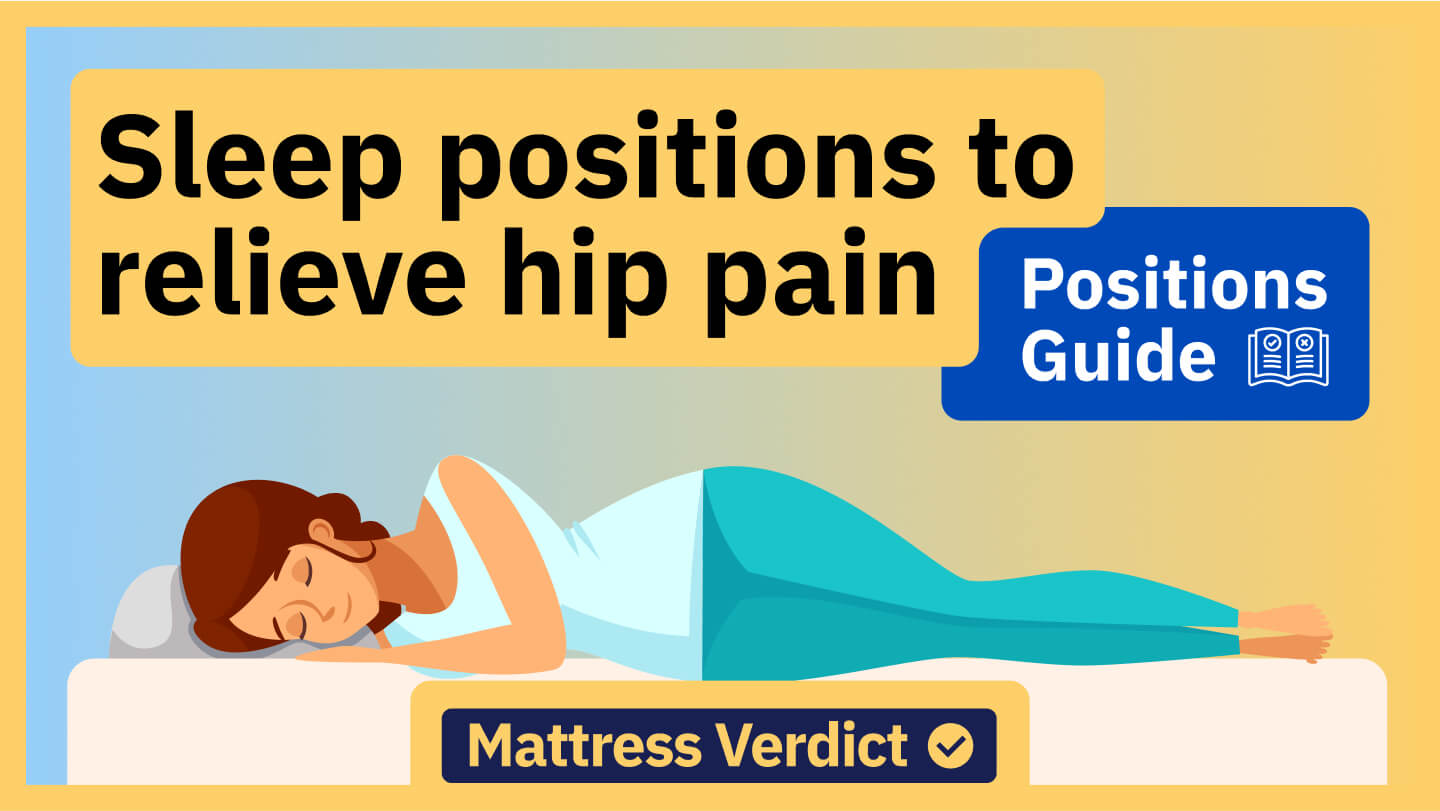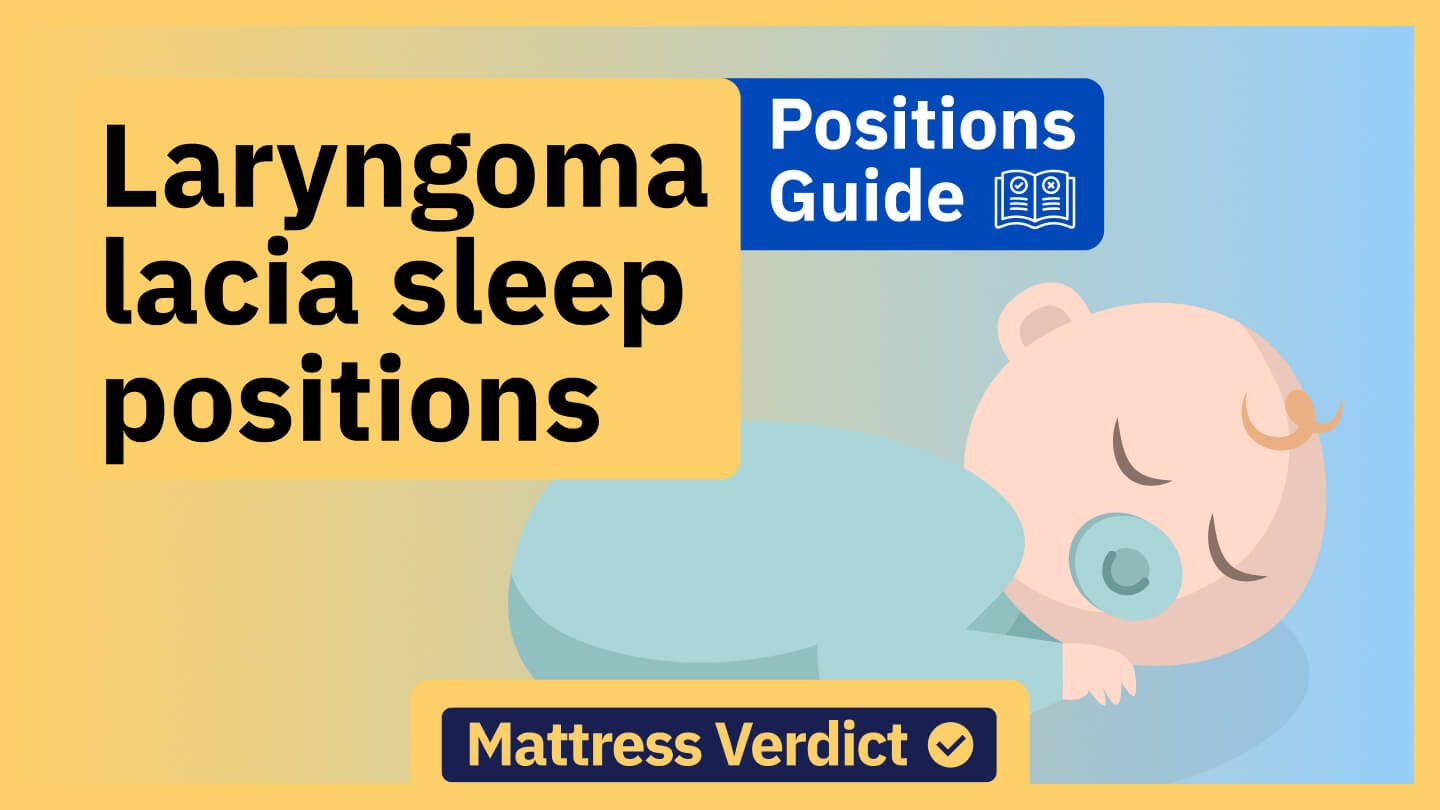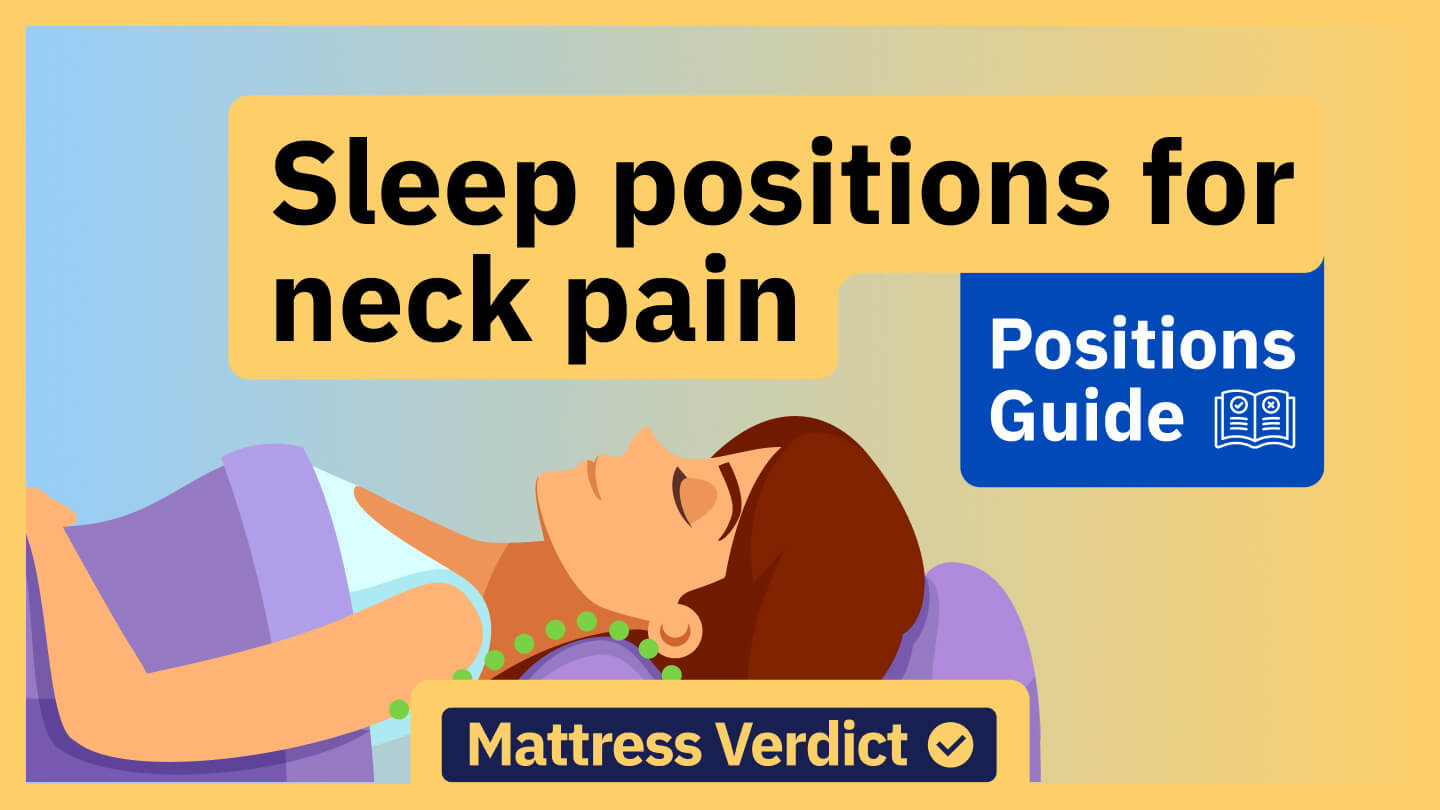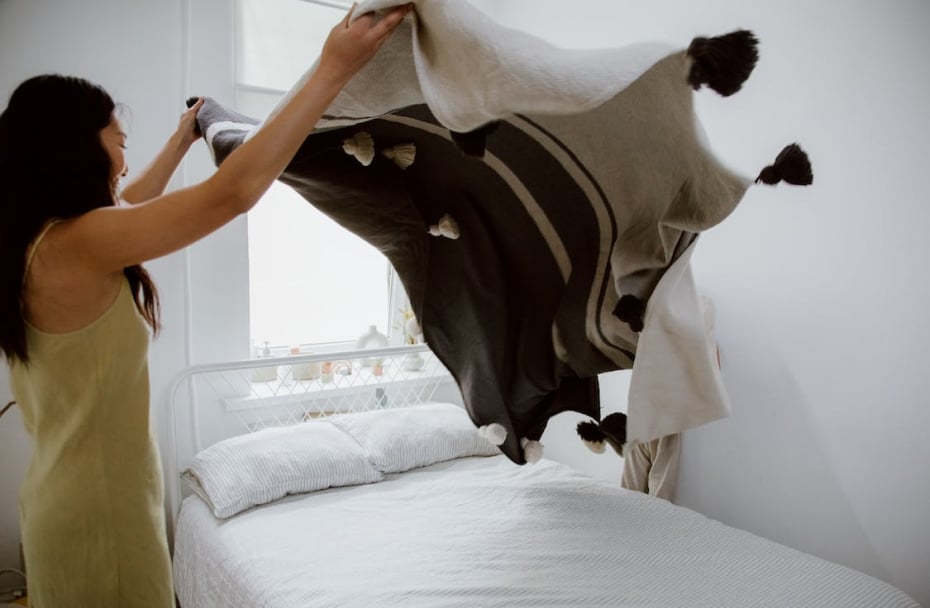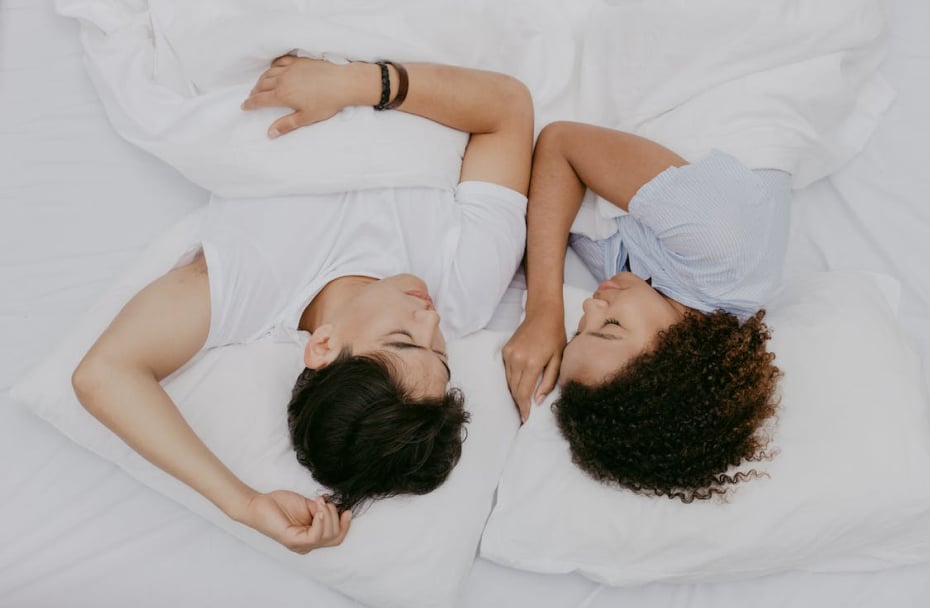



You should get 7-8 hours of sleep daily to stay healthy. This is a common phrase in most discussions of healthy living. But one crucial aspect that doesn't get much attention is how to fall asleep fast.
You'll agree that there's no fun in drifting to dreamland at 1 AM when you actually went to bed at 10 PM. It's exhausting and worrying, especially when you have to wake up early the next day.
This post highlights what's probably keeping you up so late and ways to fall asleep faster when you can't.
Let's start here.
How Long Should It Take to Fall Asleep?
You'd need to get hooked up to an electroencephalography (EEG) machine to find out how long it takes you to snooze. Adults with healthy sleep patterns typically take 10-20 minutes to fall asleep. Studies show that people who fall asleep within this time frame are more likely to sleep better.
It's perfectly normal to take slightly longer than this to sleep. There's nothing to worry about if it occasionally takes up to an hour to shut your eyes, especially when you have anxiety or after a major life event. It gets worrying when increased sleep latency (the time it takes to fall asleep) persists for days, weeks, months, or longer.
Results from one study show that increases in sleep latency (SL) often lead to a decline in sleep health among normal sleepers.
Falling asleep within the typical 10-20 minutes is a good sign that you are ready for sleep, both mentally and physically. Having said that, you may think that turning your brains off abnormally faster is even better. But that's a sign of sleep debt, sleep deprivation, or an underlying sleep disorder.
Why Can't I Fall Asleep?
Some of the reasons you may have difficulty falling asleep include the following;
-
Insomnia- this is a treatable medical condition characterized by trouble falling and staying asleep. It can be short-term or chronic.
-
Having too much sleep during the day- taking a longer nap in the hours leading to actual sleep time will decrease adenosine levels in the brain. As a result, you lay awake longer before drifting to sleep.
-
Not having a proper bedtime routine.
-
Disruption of the sleep-wake circadian rhythm.
-
Medications, such as stimulants, some antidepressants, and steroids.
How to Go to Sleep Fast
Now that you know what causes difficulty drifting to slumberland, here are our recommendations and tips for better sleep.
Establish a Consistent Sleep Routine and Schedule
Following these tips for how to sleep faster and not fixing your sleep routine is like relying on weight loss pills. Those pills may suppress your appetite and even help you shed a few pounds. However, they won't do much unless you fix your eating habits.
A sleep schedule is a series of activities that you perform systematically 30-60 minutes before bedtime. When repeated consistently, the brain gets used to them as precursors to bedtime, so it calms down and starts setting itself up for sleep.
Research suggests that people who stick to a consistent sleep routine enjoy quality rest. Sticking to a bedtime schedule will also help you reset and maintain an optimal circadian rhythm. Optimizing your circadian rhythm attracts better sleep, mental focus, and reduced risk of blood pressure and heart disease.
A sleep schedule is not a one-size-fits-all. You'll need to create one based on your chronotype and evening routine. That said, these ideas may help:
-
Decide on a bedtime and stick to it
-
Fill your evening with calming activities to allow your mind to cool down
-
Cut off coffee at least 6 hours before bedtime
-
Try journaling or reading a book to relieve anxious thoughts
-
Cut off electronics in bed
-
Practice meditation
-
Take a warm bath
Consider a New Mattress
You probably haven't thought about it yet, but your mattress could be behind your sleep struggles. A super uncomfortable bed can lead to trouble falling asleep, multiple nighttime awakenings, and long-term sleep deprivation. That's why getting a good mattress should top your strategies for how to fall asleep fast.
A good mattress helps you drift to sleep easily. It remains comfortable throughout the night, allowing you to get more deep sleep and wake up relaxed and restored.
Lumpy and deep indentations are clear signs that it's time for a new mattress. Other indicators you need a new mattress include pressure points that force you to keep rolling over, sleeping hot, and waking up with morning aches and allergies.
The best mattress to buy is subjective. Your ideal choice will be based on factors such as your favorite sleeping position, weight, allergies, and whether or not you sleep hot. Couples will be happy to get a mattress that accommodates both parties.
When you come down to it, mattress material and firmness level greatly determine how fast you fall asleep. A 2015 study shows that memory foam mattresses with a medium firmness level reduce how long an individual takes to fall asleep (sleep latency).
No two mattress types are made the same way, though. Whatever mattress type you choose, consider a brand that offers a long trial and free returns. Mattress reviews from current users will also help in decision-making.
Create a Sleep Friendly Environment
There's more to falling asleep than simply laying your head on the pillow. It's not just about the mattress and a bedtime routine. Your sleep environment is just as important and contributes immensely to a good night of restful sleep.
There are multiple ways you can make your bedroom a haven for your weary self:
- Start by setting the best temperature for sleep
A too hot or cold bedroom will likely make it harder to fall asleep and stay asleep. Research shows that the ideal bedroom temperature range for good sleep at night is 60 to 67 degrees Fahrenheit.
- Get rid of as much excess light as possible
Light plays a great role in regulating the sleep-wake pattern. The brain produces the melatonin chemical that induces sleep when it's dark. Likewise, light can inhibit the production of this hormone, making it harder to fall asleep.
- Invest in blackout or room-darkening curtains
You'll find a lot of these at an affordable price on Amazon. The best part about room-darkening curtains is that they also work as insulators. They will keep your bedroom cooler in the summer and help with heat retention during winter.
- You'll also need to keep noise to a minimum
Consider adding sleeping tools, such as white noise machines and earplugs, so the noise of chirping birds or vehicles driving by won't be disruptive.
- Go for bedroom colors that evoke relaxation
Besides being aesthetically appealing, your bedroom wall colors should contribute to a peaceful atmosphere. Lighter shades of blue offer the best bedroom colors for sleep, thanks to their psychologically calming effect. Green is another suitable color for the bedroom because it's reminiscent of nature.
The Impact of Caffeine, Alcohol, and Screens on Sleep
There are several things that you need to avoid starting from 6 PM or 7 PM, extending to your preset bedtime, depending on when you go to sleep. These affect your ability to fall asleep or keep awakening you, making it impossible to enter the restorative stages of sleep. They include screens, caffeine, and alcohol.
Establish ‘No Screen Time’ an Hour Before Bedtime
You are probably aware that it’s wise to minimize the use of digital devices in bed. The reason for this is really simple.
When you use your devices in darkness, the blue light slows or halts the production of the sleep hormone melatonin. The light also triggers the reticular activating system (RAS) to activate wakefulness, thus keeping you from falling asleep as fast as you’d wish.
Research shows that screen time up to one hour before bedtime can greatly impact sleep latency. A good idea is to establish no screen time at least an hour before bedtime. If you can’t fight the temptation to bring your devices into the bedroom, dedicate a place outside the bedroom where you ‘park’ all your electronics.
Cut off Caffeine 6-8 Hours Before Bedtime
Over 150 Americans prefer starting the day with a cup of joe because it wakes them up. It’s also common for most people to grab a few more cups of coffee throughout the day to help them stay more alert.
Besides being a psychoactive stimulant, there is a hidden property of caffeine you should know. Caffeine has a half-life of around six hours and a quarter-life of up to 12 hours. This suggests that a quarter of the caffeine you took at, let’s say, 2 PM will still be circulating in your brain at midnight.
As a central nervous system stimulant, caffeine in the evening can slow sleep onset. It also makes it harder to stay asleep, reducing deep, restful sleep time.
The latest you can have a cup of joe will depend on your schedule. But experts’ advice is to avoid coffee 6-8 hours before bedtime.
Avoid Alcohol 4 Hours Before Sleep
Do you feel a few drinks help you relax and sleep at night? Well, you’re among 20% of Americans who value taking alcohol as one of the ways to fall asleep fast.
We’re sorry to burst your bubble, but alcohol- whether in beer, wine, gin, or rum- is not a sleep aid. Alcohol is a sedative, meaning it can make you fall asleep fast. But that’s about it- sedation is not deep sleep.
While it may induce sleep, alcohol is known to cause sleep fragmentation. The problem with using alcohol for sleep is that it keeps activating your brain during sleep, causing frequent, short awakenings throughout the night.
Moreover, alcohol can block or disrupt your sound sleeping system causing nightmares and further sleep fragmentation.
An occasional nightcap to help you relax is not a bad idea. It becomes a problem when you use it repeatedly as a sleep aid. Experts advise waiting four hours between drinking alcohol and bedtime.
Exercise for Better Sleep
We all know that exercising is essential for maintaining physical fitness and well-being. Research now suggests that exercises are as good as prescription sleep medication. A 2015 meta-analysis points out that regular exercise can improve sleep onset latency and total sleep time.
Exercising impacts sleep quality by increasing your core body temperature. The core body temperature is part of the circadian rhythm and promotes wakefulness. After 30-90 minutes, the core body temperature starts dipping, signaling your body it’s time to sleep.
Sleep experts have traditionally advised against exercising at night, arguing that it can interrupt sleep. However, a 2018 study proves that exercising is one of the best tricks to fall asleep fast and enjoy deep sleep. Just ensure that the exercises are low to medium-intensity. Individuals who engage in high-intensity activities less than an hour before bedtime demonstrate difficulties falling asleep and poor sleep quality.
Try Relaxation Techniques for Sleep, like Deep Breathing, Meditation, and Yoga
Mindfulness Breathing
Concentrating on deep breathing is easily one of the best ways to fall asleep. Deep breaths promote sleep by activating the vagus nerve- a mixed nerve that manages stress, anxiety, and fear, letting you feel more relaxed.
The 4-7-8 is the most popular breathing exercise for falling asleep fast. Here’s how to do the 478 breathing method:
-
Gently press your lips and breath in slowly through the nose for 4 seconds
-
With your lips still pressed, hold your breath for 7 seconds
-
Exhale forcefully through the mouth while making a whoosh sound for 8 sounds
-
Repeat 4 times
Meditate 5-20 Minutes Before Bedtime to Ease Your Mind
Human beings have been meditating for thousands of years. While it has mostly been used for religious purposes, meditation is increasingly becoming even more popular for its health benefits.
If you have trouble falling asleep at night, meditating even for 5 minutes can help bring inner peace and lower your heart rate. When done regularly before going to bed, meditation can reduce symptoms of anxiety, fatigue, and depression. Meditation has also been shown to increase melatonin, meaning it may be an easy way of falling asleep fast.
Use Natural Sleep Aids
There are a lot of over-the-counter medications that can help you slumber. For instance, while melatonin is naturally produced in the body, it’s also available as a supplement. Melatonin supplements may be used to reduce sleep onset latency and reset the circadian rhythm, for instance, after a long flight across multiple time zones.
Melatonin dietary supplement is a safe sleep aid for short-term use. But it’s not recommended if you are pregnant or nursing.
Here are other natural home remedies to help you sleep faster and longer:
-
Warm milk
-
Herbal teas: valerian root tea, chamomile tea, lavender tea, passionflower tea, and rooibos tea
-
Lavender aromatherapy
-
Glycine supplement
-
Magnesium supplement
-
Essential oils- lavender, chamomile, bergamot, peppermint, cedarwood, and sandalwood
Conclusion
Now, don’t get it twisted. We’re not trying to teach you how to live. Instead, we offer tips on how to fall asleep fast. If your reliance on a glass or two of wine to drift to dreamland is worrying you, perhaps it’s time you consider other tricks that make you fall asleep quickly without disrupting your slumber later in the night.

